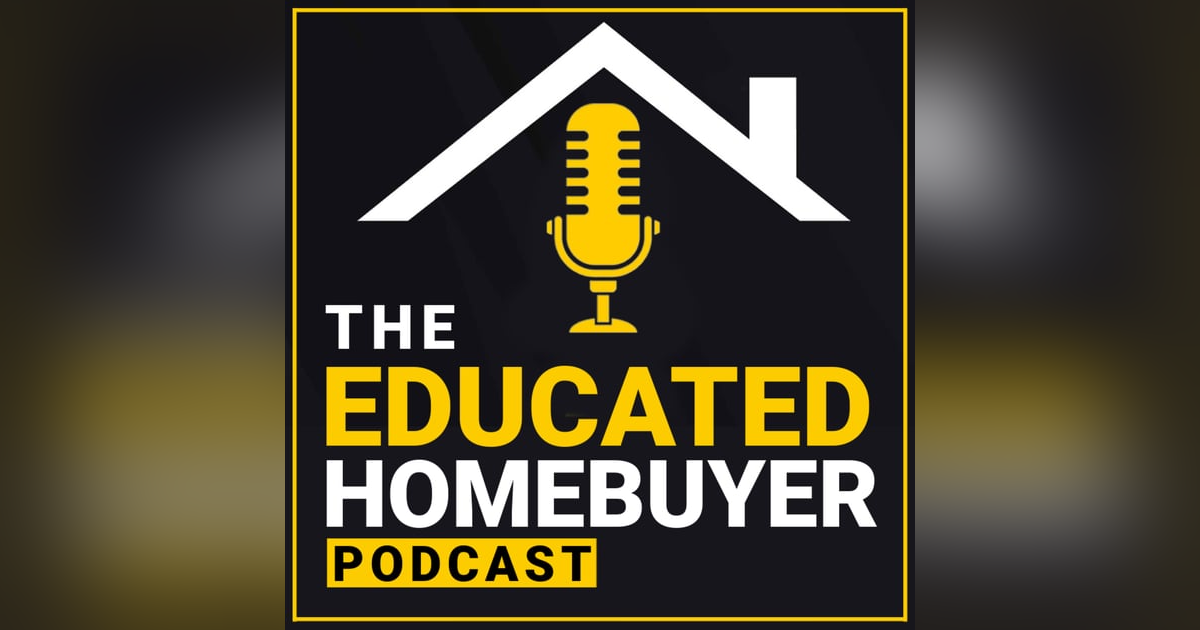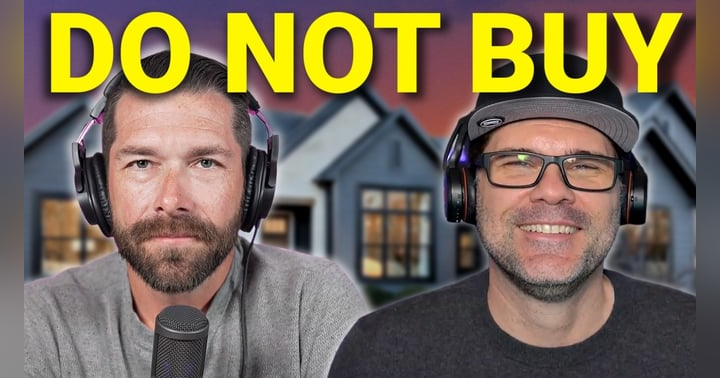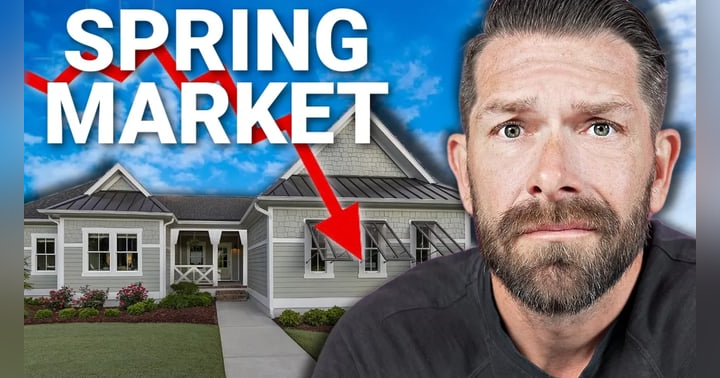Why Buying Still Beats Renting | 30-Year Wealth Comparison

Why Buying a Home Still Beats Renting: A 30-Year Perspective on Real Estate, Wealth & Stability
Thinking about buying a home? Start your journey today: theeducatedhomebuyer.com/start
The 30-Year Real Estate Journey: What the Numbers Really Say
Over the last three decades, home values across the U.S. have risen dramatically. On average, there has been a 300% increase in national home prices. In hot markets like California and Washington, appreciation rates have reached up to 400%. Even more moderate markets have still seen impressive gains of 200% or more. It’s tempting to chalk this up to timing, but the real takeaway is the importance of long-term strategy, thoughtful timing, and smart decision-making around housing.
Buying a home isn’t just about making a one-time investment. It’s about creating a long-term plan that supports financial growth and personal stability. The headlines may focus on boom-and-bust cycles, but real estate remains a solid, wealth-building asset for those who stay the course. While markets fluctuate, time in the market has consistently beaten attempts to time it perfectly.
Homeownership vs. Stock Market: What If You Had Invested Instead?
Imagine this scenario: you bought a median-priced home in 1995 for $130,000. With a 5% down payment and a $1,000 monthly mortgage payment (plus roughly $200 for taxes and insurance), you were paying about $1,200/month to own your home. Not only did this give you shelter and stability, but it also locked in your housing cost for decades.
Fast-forward to today, and that same home is worth around $420,000. That’s nearly $300,000 in appreciation over 30 years, translating to an annualized growth rate of 3.83%. What did that $8,000 down payment earn you? Nearly 37x growth.
Now let’s compare. Had you invested that same $8,000 in the S&P 500 and earned the historical return of 10.09% annually, you’d have around $160,000 today. Impressive, but it ignores a major factor: housing is not optional. You still would have had to pay rent along the way—rent that only increased over time.
Real estate: $8,000 to $298,000 (plus avoided rent)
Stock market: $8,000 to $160,000 (but you still paid rent)
But Wait, There’s More: The Rent You Would Have Paid
If you chose to rent instead of buy, your $1,000 monthly rent in 1995 would now be about $3,200—that’s a 3.7% annual increase. Over 30 years, you've spent well over $700,000 in rent payments. And what do you have to show for it? Nothing. No equity. No appreciation. No financial return.
Renting is not just a neutral financial decision—it’s a costly one. Over time, it becomes increasingly expensive as rents rise and your income struggles to keep pace.
The Power of Fixed Housing Costs
One of the strongest arguments for homeownership is the ability to lock in your housing cost for 30 years. Your principal and interest remain the same while your income likely increases over time. This fixed cost becomes more manageable as your earnings grow, freeing up more of your budget for savings, investments, or lifestyle upgrades.
Meanwhile, renters are subjected to unpredictable hikes every year, driven by inflation, market demand, and landlord decisions. Even in areas where insurance and property taxes rise, those increases are modest compared to skyrocketing rents.
Homeownership as Forced Savings
Mortgage payments are not just an expense—they’re a powerful tool for building equity. Every payment includes principal, which is like putting money into a savings account you can access later. Over time, this forced savings builds significant wealth.
Contrast this with renting, where 100% of your payment goes to someone else’s bottom line. Even if homeowners refinance or use equity strategically (for education, home improvements, etc.), the long-term trajectory remains a net gain when managed wisely.
What If You Buy at the Peak?
Fear of buying at the peak keeps many would-be homeowners on the sidelines. But here’s the truth: you don’t need perfect timing. A long-term time horizon will correct for temporary dips. One couple bought at the height in 2006 for $600K. Prices fell, but they held on. Today, their home is worth $1.1M, and they enjoy a 2.5% interest rate. Their long-term view paid off—literally.
Don’t let short-term fear rob you of long-term wealth. Buying a home is a personal financial decision, not a stock trade. With the right plan, the risks can be minimized and the rewards amplified.
Future Outlook: Will the Next 30 Years Be the Same?
It’s unlikely we’ll see the same tailwinds again. Interest rates that dropped from 16% to 2.5% created a once-in-a-generation boost. Dual-income households also surged in the 70s through the 90s, increasing affordability. Those trends are unlikely to repeat.
Still, moderate appreciation of 2.5% to 3% annually is expected, especially in markets with limited housing supply and strong job growth. When combined with fixed payments and equity growth, even this modest appreciation can translate into significant net worth over decades.
Risks of Renting Long-Term
- Zero equity or wealth building
- Continual rent increases (3%+ annually)
- No control over lease terms or living situation
- No tax deductions or ownership perks
- Missed opportunity to lock in housing costs
Homeowners enjoy:
- Consistent housing costs
- Equity and appreciation over time
- Tax advantages (where applicable)
- Freedom to personalize and invest in your space
What If You’re Not Ready Yet?
Not everyone is ready to buy a home today—and that’s okay. But if homeownership is in your future, the time to start planning is now. Ask yourself:
- Is my income stable and predictable?
- Do I plan to stay in the area for at least 5-10 years?
- Do I have a down payment saved or a path to get there?
If you're unsure, talking to a professional can help clarify your next steps. The earlier you start, the easier it is to take advantage of opportunities as they arise.
Conclusion: Buy Right. Borrow Smart. Build Wealth.
Owning a home remains one of the best tools for building wealth, creating stability, and achieving long-term financial goals. It’s not about speculation or short-term wins. It’s about locking in your cost, building equity, and staying the course over time.
If you're thinking about your future and want a roadmap, we can help.
Take the first step today: theeducatedhomebuyer.com/start
Share this post with a friend or family member who needs to hear this. The best time to start was yesterday. The next best time is now.


